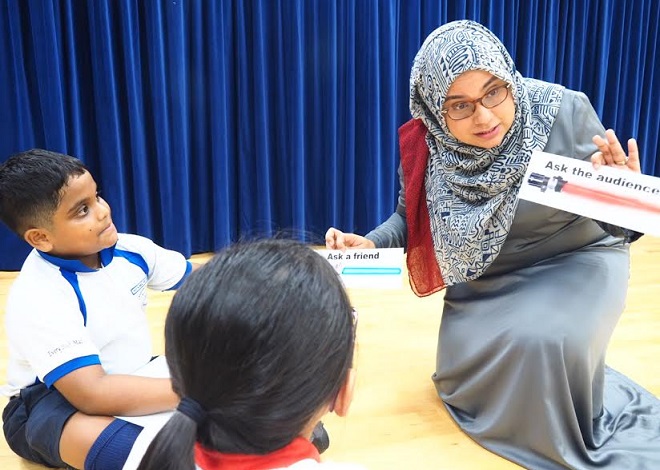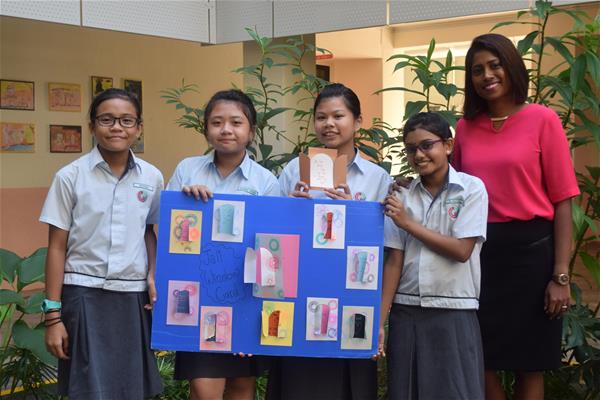Farah Bte Syed Haider Alsagoff, Chongzheng Primary School, Outstanding Youth in Education Award 2017 Recipient
Learning was Messy for Me
As a 7-year-old, I would always sneak a piece of chalk out of my classroom so that I could go home and scribble everything I had learnt that day underneath our wooden dining table. I was blissfully unaware then, but Mathematics was not my forte. To me, it was simply a series of stories and puzzles I was excited to try out.
I came to realise my weakness in the subject as I grew older, but I was fortunate to have had teachers who never belittled the methods I used to solve each question.
It always seemed like other students had it easier; knowing what to pluck from their organised mental folder of mathematical formulas to answer any question. My worksheets, on the other hand, were always slightly crumpled and full of drawings as I drew and talked my way through each question. Learning was messy for me. But I had never loved any subject more.
Math Wars
I have repeatedly encountered students with a genuine fear of Mathematics. It has defeated them time and time again, and they no longer see the point in trying. I felt a need to help them gain confidence in that subject. With the support of my department, I created an inter-class Mathematics competition.
I wanted to motivate students to master their multiplication tables while creating a safe and exciting atmosphere for them to come together and answer Mathematics questions. I called it “Math Wars”, a play on Star Wars to hook students’ interest.
It would not, however, have been sufficient to depend completely on this theme. The students need to see how engaging, exciting and collaborative this competition could be.
One of the highlights of this competition is the bingo round, where different multiplication questions are flashed every 30 seconds. Students need to think fast and support their teammates. Physical and mental fatigue would set in, but students would push one another on, not wanting to let the team down.
The finalists would then proceed to “The Final Battle” where they face a series of tougher questions.
Group work plays an important role in reducing student anxiety, so I provided participants with the security that they are never alone in this competition. As each question is flashed, both participants and audience members scramble to try and solve them.
Audience members can step in and offer assistance should the participants choose to either “Call a friend” or “Ask for an Audience Vote”. This results in a whole room of students collaborating and learning from one another.
It was especially touching when groups of students from other levels showed up to lend their support – even to opposing teams, clapping wildly as they progressed to the next stage. The competition gave the lower-progress learners a taste of success, and a much-needed boost of self-confidence.
Encouragement, the Key
Encouragement is the key to learning. Our students need to feel the full support of teachers and parents, in order to overcome the deep-rooted fear and anxiety they may have for any subject. This gave me the idea of having a board in class with messages that parents are encouraged to pen at the end of each Parent-Child-Teacher Conference session to motivate their children.
I once had a student going through a difficult time in school. I brought him to the back of the classroom where the notice-board was, and asked him to read aloud what his mother had written. She wrote that he should always keep trying and never give up, because no matter what, she would always be proud of him. Through that simple note, his mother helped me lift his spirits, without having to be there physically.
There is still a long road ahead towards creating and maintaining a positive tone of learning among students, but I am not alone. I am in the company of dedicated teachers and supportive school leaders.
The 7-year-old child I used to be, armed with a piece of chalk in hand, taught me to always keep moving forward towards my goals despite any challenges I face. If I can help my students to do the same, I would have received the most priceless reward a teacher can ever hope for.






.jpg)